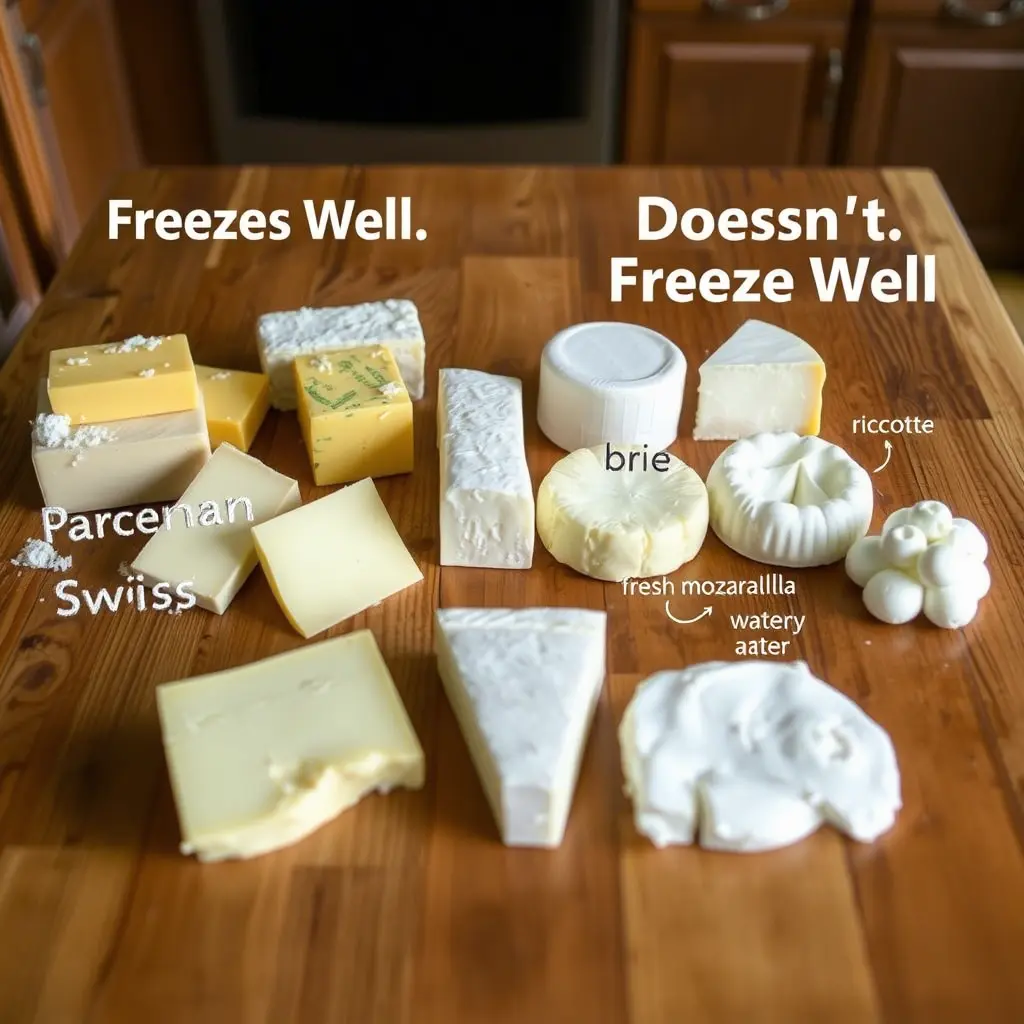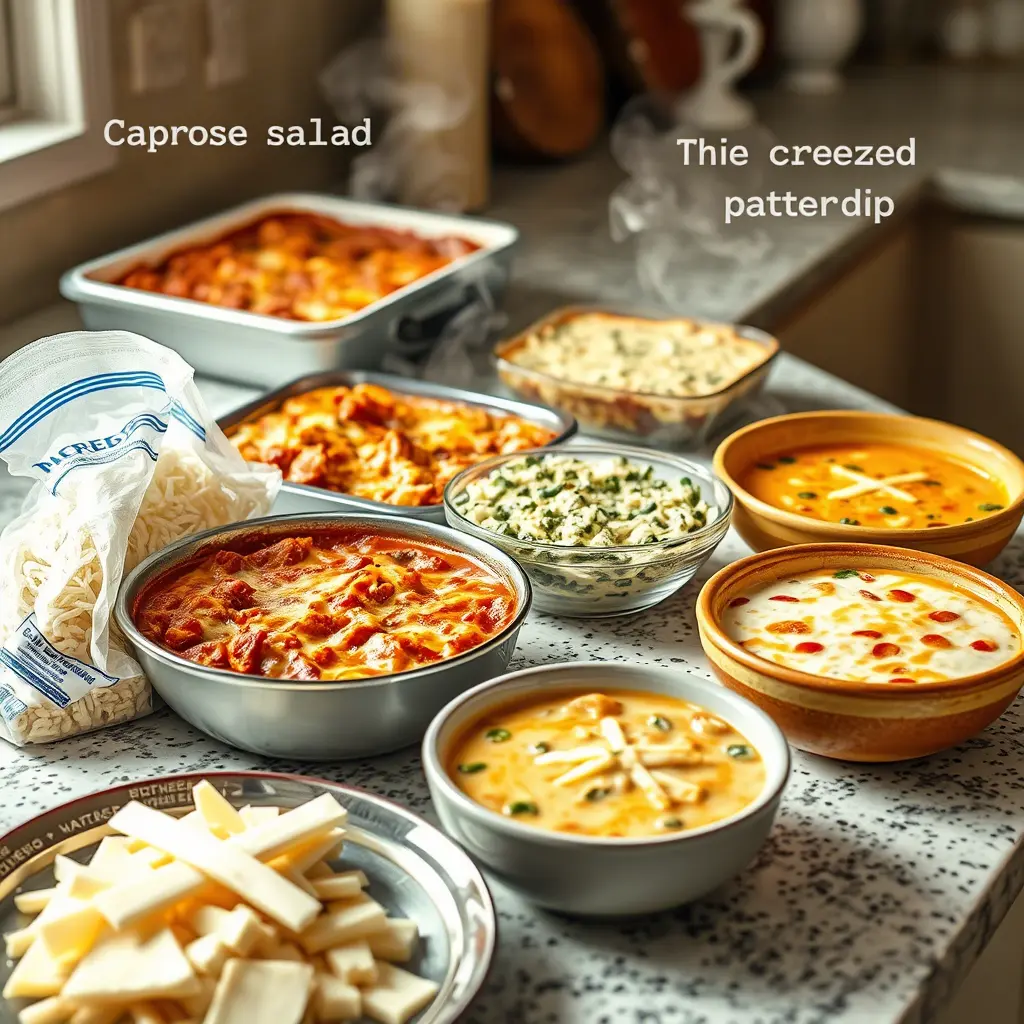Can You Freeze Cheese 7 Surprising Facts You Need to Know
Cheese is one of life’s simple pleasures, but what happens when you buy more cheese than you can eat? Can you freeze cheese to extend its shelf life? Surprisingly, the answer isn’t a simple yes or no. While freezing cheese can be a useful storage method, it also comes with some unexpected quirks.
This blog dives into seven surprising facts about freezing cheese, covering everything from which cheeses freeze well to how frozen cheese can retain (or lose) its flavor. By the end of this guide, you’ll know exactly how to freeze cheese like a pro and when it’s best to avoid the freezer altogether.
Table of Contents
Not All Cheeses Freeze Well
If you’re wondering, “Can you freeze cheese successfully?” the first thing to know is that not all cheeses are created equal when it comes to the freezer.

- Hard cheeses like cheddar, Parmesan, and Swiss are your best options. These varieties have lower moisture content, meaning they’re less likely to suffer major texture changes after freezing.
- Soft cheeses, on the other hand, are a different story. Brie, ricotta, and cream cheese don’t freeze as well because of their higher water content. Once thawed, they can become grainy and watery, losing their creamy consistency.
- High-moisture cheeses like fresh mozzarella or burrata also don’t fare well in the freezer. They can become rubbery or watery and won’t return to their original texture, making them less appealing for fresh dishes.
Freezing Changes the Texture
Even for hard cheeses, freezing can alter the texture. Cheese that was once smooth and firm can become crumbly or slightly gritty after being frozen and thawed. This happens because freezing causes ice crystals to form in the cheese, disrupting its natural structure.

For this reason, frozen cheese may not be ideal for enjoying on a charcuterie board or as a standalone snack. However, it’s still perfectly suitable for cooking and baking, where the change in texture won’t be noticeable.
Best Practices for Freezing Cheese
If you’ve decided to freeze your cheese, following the right method is essential to maintaining its quality. Here are some tips for success:

- Wrap it properly. First, wrap the cheese tightly in plastic wrap or parchment paper to protect it from freezer burn. Then, place it in an airtight freezer bag or container.
- Portion it out before freezing. Cheese can be difficult to cut once frozen, so slice or shred it into convenient servings beforehand.
- Label with the date. Keep track of how long your cheese has been in the freezer to ensure you use it before its quality deteriorates.
Investing a little extra time in proper wrapping and portioning can make all the difference when it’s time to use your frozen cheese.
How to Thaw Cheese Properly
Thawing cheese is just as important as freezing it. To avoid a soggy or unappetizing result, remember these tips:
- Thaw it slowly. Place the cheese in the refrigerator for several hours or overnight. Thawing it gradually helps preserve its texture.
- Avoid the microwave. While it may be tempting to speed up the process, microwaving frozen cheese can lead to uneven texture and flavor changes.
- Use it right away. Once thawed, cheese doesn’t refreeze well, so make sure to use it promptly in your recipes.
Using Frozen Cheese in Recipes
Frozen cheese may not have the same smooth texture as fresh cheese, but that doesn’t mean it’s useless! It works wonderfully in a variety of cooked dishes such as:

- Casseroles
- Soups
- Pasta dishes, such as lasagna
- Cheesy dips (think spinach artichoke dip)
Shredded or grated frozen cheese melts easily and blends into these dishes without anyone noticing a difference. Just avoid using frozen (and thawed) cheese in recipes where the texture is key, like a Caprese salad or fresh cheese platter.
Shelf Life of Frozen Cheese
One of the great benefits of freezing cheese is its extended shelf life. When stored properly, most cheeses can stay in the freezer for up to 6 months. However, keep in mind that the sooner you use it, the better it will taste and feel. Some soft and high-moisture cheeses may last slightly less time because their texture deteriorates more quickly.
For optimal freshness, try to consume frozen cheese within 2 to 4 months of freezing. This ensures you’ll still enjoy its best flavor while reducing the risk of significant texture loss.
The Impact of Freezing on Cheese Flavor
Texture isn’t the only thing affected by freezing. Cheese flavor can also change during the freezing and thawing process. The taste of some cheeses may become slightly muted or less sharp after freezing, especially for aged varieties.
While this impact is barely noticeable in recipes or cooked dishes, it’s something to consider if you’re planning to use the cheese in its raw form. Want to keep your cheese flavors vibrant? Store softer and more delicately flavored cheeses in the fridge and enjoy them fresh.
Final Tips for Cheese Storage
Freezing cheese is a practical option when you need to extend its shelf life, but it’s not always the best route for maintaining texture and flavor.
When freezing cheese:
- Stick to hard options like cheddar, Parmesan, and Swiss.
- Portion and wrap carefully to retain as much quality as possible.
- Use properly thawed frozen cheese in cooked recipes where changes in texture won’t matter.
Want some inspiration to make the most of your cheese? Check out our collection of cheesy recipes and start cooking with confidence. From gooey lasagna to rich, creamy soups, we have plenty of ideas to help you put every last shred of your cheese to good use.
FAQ About Freezing Cheese
Can all types of cheese be frozen?
Not all cheeses freeze well. Hard and semi-hard cheeses like cheddar, Parmesan, and Swiss are better suited for freezing, while soft cheeses like brie and cream cheese may undergo significant texture changes.
How long can cheese be stored in the freezer?
Cheese can typically be frozen for up to 6 months. However, for the best quality, it’s recommended to use it within 2-3 months.
Can I eat frozen cheese straight from the freezer?
Frozen cheese is best used in cooked dishes, as its texture and flavor may change after freezing. Thawed cheese works wonderfully in recipes like casseroles, soups, and sauces.
What’s the best way to thaw frozen cheese?
Thaw cheese in the refrigerator for several hours or overnight to minimize moisture loss and texture changes. Avoid thawing at room temperature to ensure food safety.







